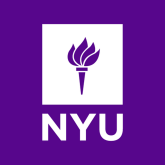- Academics
Human-Centered Technology, Innovation & Design, Ph.D.

Innovations in technologies redefine and reshape people's lives, changing social and cultural practices, norms and values, institutional processes, and economies and infrastructures. Working to develop new applications for existing and emerging human-centered technologies informed through rigorous, interdisciplinary research and managing socio-technical transitions is a fast-growing and highly important area of research across a number of fields and disciplines. The mission of the Tandon School of Engineering's Human-Centered Technology, Innovation & Design Ph.D. program is to educate and train scholars who will produce pioneering research and scholarship at the vanguard of technological practice and theory.
This program fosters student research through its focus on high-quality supervision and training by faculty members with significant research strengths in a diverse range of technology-related fields, including: digital media and creative practice, design and human-computer interaction, science and technology studies, urban and environmental studies, sociotechnical complex systems, and technology management and innovation. Students in the program typically follow an individualized path based in one of four main areas of focus:
- Human-Computer Interaction (HCI)
- Design Research & Practice
- Management Science
- Computational Social Science
The Human-Centered Technology, Innovation & Design program is a unique interdisciplinary Ph.D. program, offering a rigorous and flexible course of study that unites the strengths of the Departments of Technology Management and Innovation and Technology Culture & Society at the NYU Tandon School of Engineering. It is ideal for students who are primarily interested in pursuing teaching and/or research-based careers at higher education institutions. Universities with undergraduate and graduate programs that emphasize the integration of design and technology development with the critical study of society and technology or the management sciences are a primary source of career opportunities for our graduates. Similarly, government agencies, not-for-profit research organization, think tanks, corporate research centers, and research-based design and consulting firms also seek our graduates.

Urban Science Doctoral Track
Admissions/Applications Requirements
Admission to the Doctor of Philosophy in Human-Centered Technology, Innovation & Design program is based on an in-depth evaluation of the applicant’s academic record, professional experience, research potential, interest in doctoral study, and overall intellectual and professional qualifications. The GRE is optional, while proof of english language proficiency is required for international students.
Find out more about Admission Requirements and Graduate Admissions.
Degree Requirements and Curriculum
The curriculum for the Ph.D. in Human-Centered Technology, Innovation & Design Program fosters a research-intensive doctoral education relevant to understanding and shaping the impact of new technologies on a complex and rapidly-changing society and its institutions. We focus on how technology shapes and molds society and culture and how, in turn, social and cultural institutions respond to those impacts.
The core coursework exposes students to advanced design and research skills modulated by the development of a critically reflexive understanding of the ways in which society and technology deeply influence design and development. Research methods courses help students develop advanced qualitative, quantitative, and practice-based research as the basis for inquiring into, designing, and evaluating new technologies in the service of society.
Thematic elective courses help students gain in-depth knowledge in a focused area related to the key themes of human-computer interaction, design research, and management science. Our faculty also specialize in several areas of focus: disability studies and inclusive design, citizen science, urban sustainability, design for social change, science and technology studies, design studies, and technology ethics and politics. Students and doctoral advisers work together to curate and develop a rigorous course of study in the program.
Students are required to complete 75 credits, including 51 credits from the course work, which includes doctoral seminars, research methods courses, and thematic electives, and 24 credits from the dissertation. For more information on specific faculty interests, please refer to the faculty pages under the relevant programs.
Research Training and Interaction with Faculty
Students are expected to work actively with one or more faculty each year, and focus on completing research. Students are strongly encouraged to present research in progress once a year and work towards publishable papers, usually with a faculty as co-author. Students are strongly encouraged to work with their primary advisors to outline a plan of study where they can be involved in institutional research. Every student participates in formal research seminars with departmental faculty and visitors.





